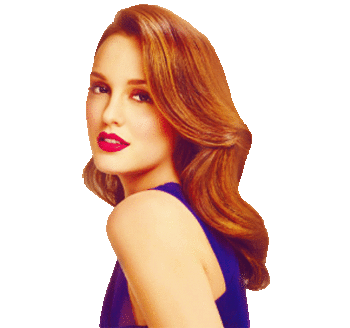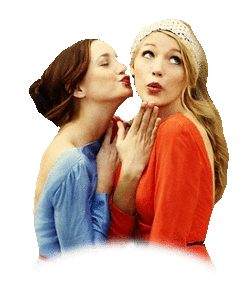Leighton intervjuv// The Oranges
Leighton Meester moves from the city to the suburbs in ‘The Oranges,’ a new ensemble comedy from veteran TV director Julian Farino, but the drama stays the same. In the film, Meester plays Nina Ostroff, who returns home after a five-year absence and upsets the delicate balance of their quiet New Jersey suburb. Despite Nina’s parents trying to set her up with their neighbors’ and best friends’ eligible son (Adam Brody), Nina instead falls for his father David (Hugh Laurie) — and the feelings are mutual.
Movies about May-December romances aren’t exactly rare, but they’re rarely this funny, and Moviefone sat down with Meester at the Toronto Film Festival to find out her opinion on the film’s unconventional love story and how the cast came together as one big happy family.
How was the premiere?
It was fun, it was very fun!
Was that the first time you’d seen the movie?
No, I have seen it before, but not in a room filled with people. It was very different. It was a very interesting experience, everybody was laughing. It was cool.
Considering most people are probably initially skeptical of the movie’s love story, is it validating to get such a positive response?
Yeah! I mean, it’s a delicate subject and I think it’s very funny, but it’s funny in the way that life is funny. So I think that’s probably why it works. It’s got a lot of tension and awkwardness but then it sort of cools off. But it’s definitely nice to hear people laughing when they’re supposed to laugh. [Laughs]
I think Alia Shawkat’s character reacting so strongly against David and Nina’s relationship helps the audience buy into what’s happening. It almost makes them seem sympathetic.
I think that anybody who watches it will probably have that reaction at first. They at first want to rebel against it, they want to say, ‘No, this is crazy and selfish.’ And then eventually you do root for their love and want it to work, because it’s genuine and it’s real. And I think that it does ask that question of what is morality, what is love, what is being selfish? Is it being selfish to find love and take the opportunity to experience it, or is it selfish for people to not want them to have it because it’s “wrong,” according to other people?
How’d you get attached to the project?
I read the script and I, of course, fell in love with it. Every time I [told people], ‘I did ‘The Oranges,” I got, ‘Oh, I loved that script!’ But then I met with Julian [Farino], who I’d actually known for quite a long time. And he initially told me a few years ago that I was maybe a bit too young for [the part]. Then, of course, two years later when they were actually making it, it was fine. It worked.
I had a very funny audition with Julian. I had it in my dressing room at work. He came to visit me on set, I was working. And they kept on coming and knocking on my door. The director of photography was there, filming me. And he would pan from me, then over to the door, where somebody was knocking, somebody from the set, and then pan back over and we would finish the scene. I’m kind of curious to see it.
You had worked with Hugh Laurie before, right?
I had, yes!
Did that help smooth over any potential awkwardness?
Yeah, it was really nice that we had already met and worked together. I already had a sense of what he’s like. And I was aware of his talents. People always talk about having nothing but admiration and positive feelings about somebody, but he ruined everything! [Laughs] No, he’s so funny and smart and talented and made everything wonderful.
How was the atmosphere on set? It seemed like you guys had a lot of fun with this.
These [characters] were people who have known each other for years. And you get to know each other very quickly on set, but it was accelerated by the fact that Julian — he’s brilliant — he just shoved us in a room together and said, ‘Okay, here you go.’ So we ate and drank and talked and, of course, rehearsed a bit.
And then during the movie we were all put in a house together, with our own rooms. You could hear Hugh playing the piano downstairs and we would all have dinners around a big table. So the atmosphere was fun and funny. And also, Julian has a really cool point of view and he adds a lot of levity, particularly in scenes that got very dramatic. He makes them funny.
You have a background in television, and so does Julian and the rest of the cast. How much do you have to change your approach for a movie?
It’s completely different. The setting is different, the timing is different, the hours are different. And the character is different. You get to plan your character from beginning to end and experience your arc as one thing, as opposed to something that lasts for years. You get to develop the backstory and what’s happening beyond the film and afterwards. In a show, you really can’t do that, which is good and bad.
But Julian is such a wonderful director, any way you look at it. I really enjoy working with him. He’s funny. I think the best thing about him is that I noticed that with different people and different ages and different backgrounds on the film, he never had a female or male point of view. It never felt like I was talking to just a man when he was talking about my character. He definitely had a really great understanding somehow — I don’t know how, you could ask him — of how a 20-something year-old girl would behave in a situation, and then be able to turn around and talk to a 50-year-old man about what his reaction would be like.






